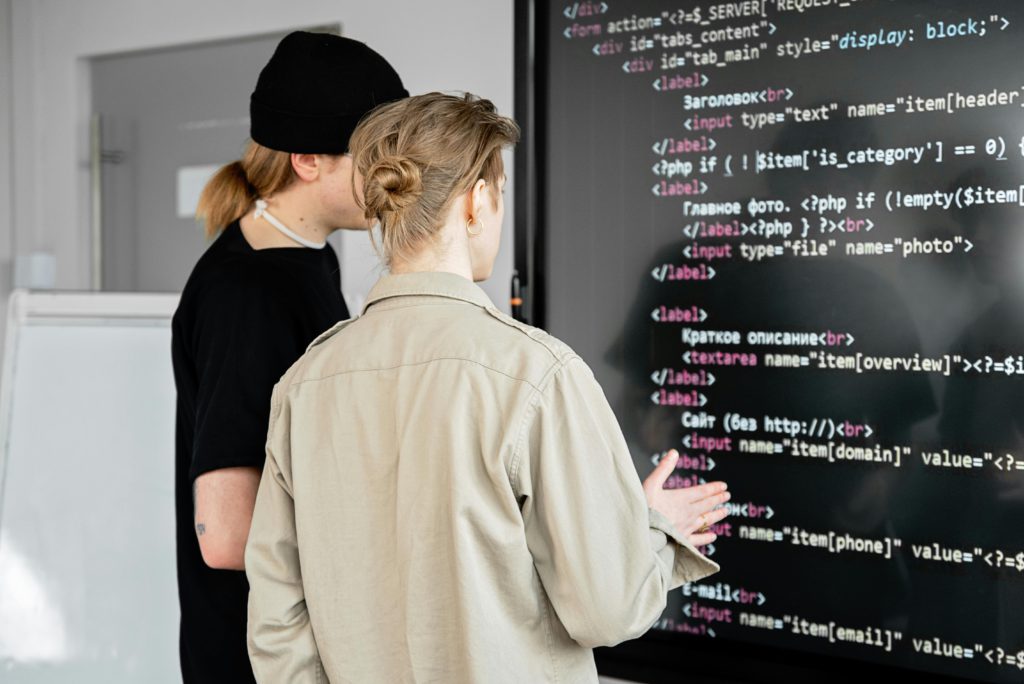Who said that teaching necessarily involves a classroom, a teacher, textbooks or tests every three or four months? Using methodologies focused on learning (and not so much on assessment), digital and the job market, there are schools that do teach differently. And sometimes learning does not even imply that there is, in fact, a school.
Considering the current and future work state of affairs, in which people increasingly work remotely, schedules move towards greater flexibility and, in some cases, the “office” shifts location depending on whether the worker relocates, so learning in a more traditional regime can negate some of the freedom that professionals are demanding. In an interview with the Head of Talent & Marketing of Future.Works, Pedro Moura even said that, based on Landing.Jobs platform data, flexibility and the possibility of working remotely are aspects that are gaining importance in attracting talent as never before.
Educational models are also being adapted to the increasingly digital context in which we live. In such models, teaching is done by alternative education methods and tools, making learning a more personalized and remote process.
In a roundtable discussion organized by Fast Company magazine, Steven Wolfe Pereira, CEO of the edtech company Encantos, said that we are facing a shift in education as we know it today. We are moving from “standardization and testing” to a “focus on learning”.
“If this is going to be the AI [artificial intelligence] era, what are the fundamental 21st-century skills? We fundamentally need to rethink the skills that are being taught at every stage of education”, Steven said.
Universities: skills for life
The forced switch to an online class model ended up opening doors through which it is important to continue moving forward. The pandemic caused almost all universities to start combining online and in-person classes, betting on a hybrid system that could last in a post-covid scenario.
However, in addition to redesigning the teaching model, it is also important to review the content that is being conveyed to the next generations who are going to join the job market, especially in a world that is increasingly digital. If it is certain that in five to ten years some of the jobs we know today will cease to exist, and that’s why universities must play a role that helps fight mass unemployment by teaching the skills of the future.
At Oxford University, efforts are being made to incorporate lifelong skills into curriculum programs. This means that a student who is attending a physics degree, for example, will be, at the same time, doing practical and complementary training on entrepreneurship, technology and leadership skills. Rice University, in Houston, Texas, is working towards giving all students the opportunity to have a professional leadership coach from the Houston business community, free of charge.
Bootcamps: updated knowledge, collaboration and problem-solving
For those who want to successfully join the Tech sector, bootcamps are one of the possible paths and may even be the answer to the current lack of tech talent in the job market.
Whoever is part of a bootcamp can, generally, expect to learn both technical and specific skills, as well as communication and problem-solving in the real world. The training is extremely practical and takes place in a short period of time, usually 9 to 12 weeks, and the course syllabuses are typically updated in order to adapt the training content to market needs.
It is precisely this constant coordination with the job market that makes employability numbers very encouraging for those who finish a bootcamp. Last year, more than 75% of students who completed web development and UX/UI design courses at Ironhack got a job in less than 90 days, reveals the training school’s report, audited by PwC.
While it is true that many employers still value resumes that include a traditional university degree, there is a growing consensus that those who finish a bootcamp may know better how to work as a team, solve problems and, on the other hand, have more up-to-date knowledge, for instance, on coding.
Precisely to update knowledge, make more effective decisions and optimize the business, Future.Works, together with Ironhack, developed “Digital Boost”, a three-month course for companies that want to boost the value of their business.
“Big Data & Data Collection”, “Machine Learning & Artificial Intelligence” and “Design Thinking” are just some of the program modules that promise to contribute to a better understanding and a better application of technology. If you want to upgrade your workforce, you can talk with us and know more about our flexible and scalable Learning & Development solutions.
Professional training: knowledge and practical tools
Professional training may be one the best learning options by offering the opportunity for students to gain knowledge and a set of specific skills for a given role. The purpose of vocational education programs is to prepare students for higher education and/or to give them the necessary skills to start working as apprentices.
The demand for this type of education seems to be growing. According to Eurostat data published during the month of November, among the 17.7 million students attending secondary education in the European Union in 2018, almost half of them (48%) were enrolled in vocational education. This percentage means that 8.5 million young people between 14 and 16 years old got tutored using Professional training.
In the tech area, Rumos was a pioneer in technical training and certification in Portugal. Among its range of students are 12th grade finalists or recent graduates, professionals who intend to enter the Tech market and professionals who want to update, recycle or see their skills recognized through official certifications.
Academies are just one of the training options and combine a training component (knowledge) and a practical component (integration into the job market through a curricular internship or apprenticeship). The purpose is to facilitate entry into the labor market or professional progression.
It doesn’t end by joining a company, training takes place throughout life
People’s education already takes place during their careers, and this will only increase. The fast and constant transformation of the world and, of course, of the labor market, makes investing in lifelong learning crucial for talent. In a conversation with Landing.Jobs chairman & co-founder, which you can read here, José Paiva argued that it is necessary to rethink the current work week, suggesting dividing the traditional eight hours of work into production time and learning time.
The 70:20:10 reference model, used by thousands of organisations, promises to exploit the learning potential of each individual, team or organization to 100%, sustaining change where it has to happen: in the real work context. In this model, 70% of the time is dedicated to learning through practice and experience in the work context, which includes, for example, simulations in real context, problem solving and improvement of systems and processes, 20% is for social learning, involving discussion groups or mentoring, and, finally, the remaining 10% are for formal learning, focused on performance-critical knowledge and contact with experts.
Inspiring kids to learn 21st century skills
There are organizations that innovate and teach using less conventional learning methods in the early stages of teaching.
This is the case of edtech, which are schools that combine education and technology, with the aim of incorporating the use of technology in learning, whether through products, software, apps or other tools.
Encantos is one of these edtech companies that believes that children learn best through series, books and games. The goal is to change education, making it more accessible, interactive and easier. Also, Ubbu brings code, creativity and citizenship to the classroom (or to the living room). Its educational plans are the first step in teaching computer science and programming, with the aim of preparing children from 6 to 12 years old for the future, transforming them into logical thinkers, problem solvers and skilled and conscientious citizens.
The educational focus is on the subjects that Ubbu considers crucial to leading the technological revolution: science, technology, engineering, arts and mathematics. Once again, a different and alternative way of looking at teaching, in a model that all children need is a computer or tablet.
Gamification of learning to increase interest, interaction and results
Gamification is, thus, used to inspire children, make them more participatory and interested. But it can also be used for adults. Basically, these are techniques that make it possible to increase the attraction, engagement, retention and learning of humans, while promoting an environment of interaction between students.
At Codewars, improving programming skills means solving real code challenges with other colleagues. With new, more creative and optimized approaches, just like in a game, the difficulty increases as “levels” are completed, there are rankings and also distinction “medals”.
“Time off” to learn
Choosing not to follow any of these teaching models or formats and preferring to take some (productive) rest time is also an option. This is the case of the famous gap year. Burnout, the desire to have a different life experience, wanting to develop new skills, volunteering or learning a new language are some of the many reasons that lead workers and students to take this experience.
This practice is quite common among university professors who take advantage of sabbaticals to renew their energy and knowledge levels, but in the curricula of most professionals it is still not very common. However, there are already several entities that help employees to take this step.
Gap years are typically done by young people about to enter higher education, recent graduates who want to mature and be better prepared to face a professional career, but can also be done by professionals who want to take a career break and learn in a less conventional way, outside of their comfort zone.
Essentially, “time off” can be used in many ways and can be very productive and enriching, both personally and professionally.
Whether in a classroom, on a Zoom class at home with a teacher, using manuals, tablets or even on a trip, investing in education is increasingly essential. And, training can take many forms, including those that, at first, seem less conventional.
Likewise, there is also no doubt that training should be carried out throughout life, especially while working, which leads to another discussion: training budget. Should this be a cost to be split by three entities? Individual, State and Organisations? Could a three-way commitment be the key to not falling behind amid a constantly changing and increasingly digital labor market?
We are makers of futures!
https://future.works/






0 Comments